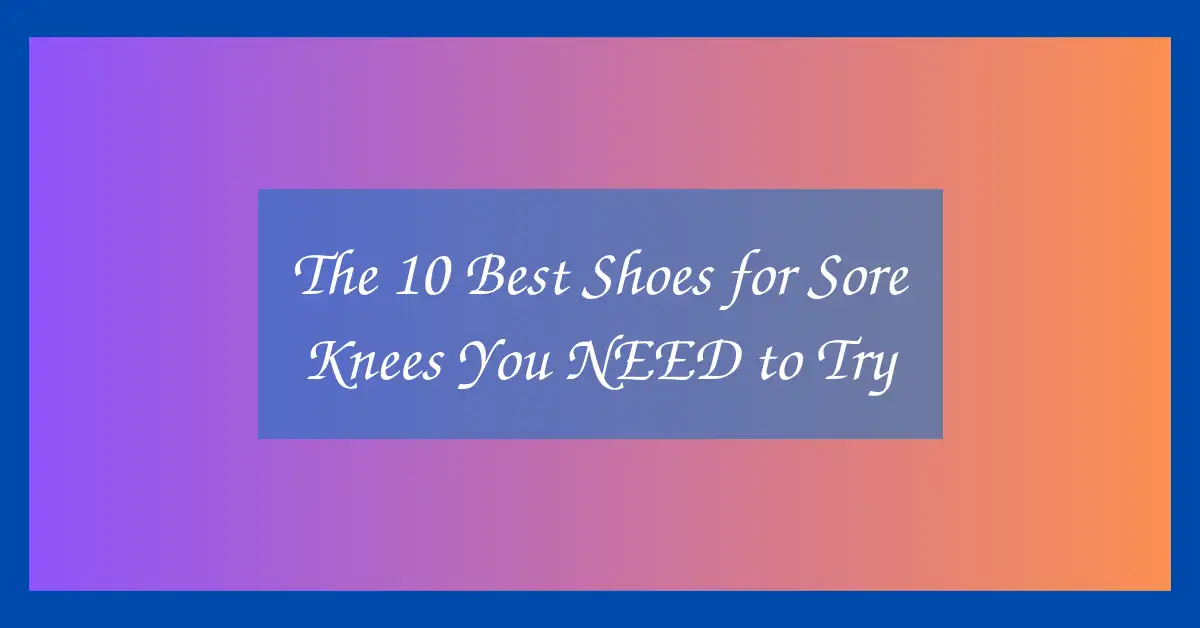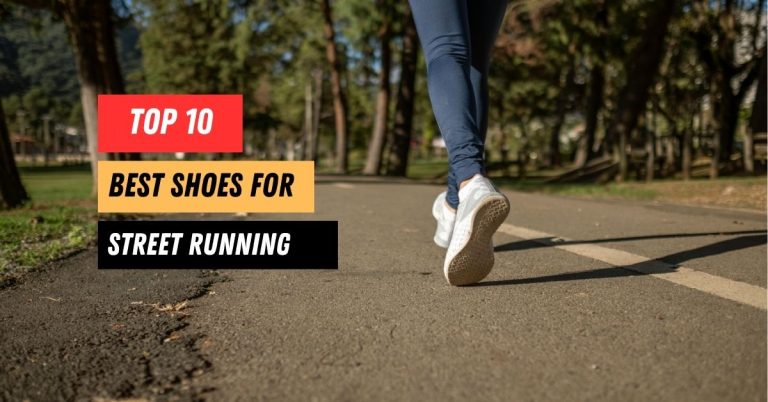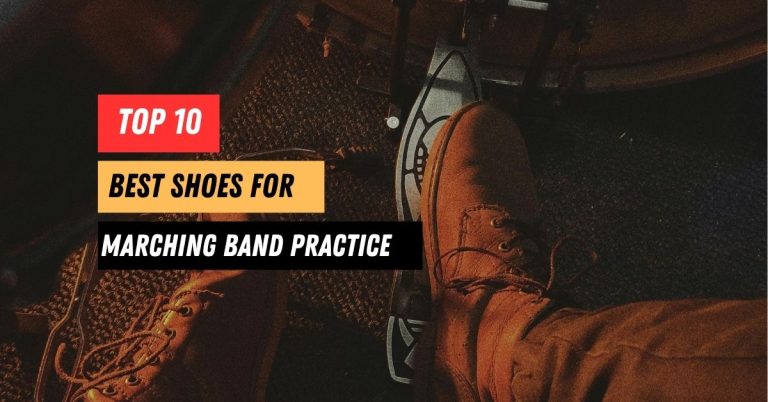The 10 Best Shoes for Sore Knees You NEED to Try
If you struggle with sore knees, the right pair of shoes can make a world of difference. Poor footwear can amplify knee pain by disrupting your natural gait and placing excess pressure on joints. On the other hand, supportive shoes help absorb shock, improve alignment, and reduce stress on your knees during everyday activities like walking, working, or exercising. Whether your knee discomfort is caused by arthritis, overuse, or improper posture, selecting shoes designed for joint support and stability is crucial. The best shoes for sore knees offer cushioned midsoles, proper arch support, and excellent traction, allowing you to move more comfortably and safely. In this guide, we’ll walk you through how to choose the right pair, what features to prioritize, and answer common questions to help ease your shopping decision.
Best Shoes for Sore Knees
Table of Contents
Toggle1. Hoka One One Bondi 8
The Hoka Bondi 8 is one of the most cushioned running and walking shoes available, making it an exceptional option for individuals dealing with sore knees. It features a thick EVA midsole that delivers plush comfort underfoot while efficiently absorbing shock with every step. The extended heel geometry and refined heel crash pad provide a smooth heel-to-toe transition, helping reduce knee strain during prolonged activity.
Designed with a breathable engineered mesh upper, the Bondi 8 keeps feet cool without compromising support. Its wide base and slightly beveled sole promote stability and proper foot alignment, which is essential for alleviating joint pain. The shoe also includes an early-stage Meta-Rocker to guide your gait naturally and reduce pressure on the knees.
While the Bondi 8 looks bulky, it’s surprisingly lightweight thanks to its compressed foam construction. This design offers all the benefits of maximum cushioning without the fatigue that can result from heavy shoes. Its padded tongue and heel collar enhance overall comfort and lockdown.
People with flat feet or those recovering from knee injuries will particularly benefit from the Bondi 8’s balance of softness and support. It’s ideal for walking, light jogging, and daily wear, making it a versatile companion for sore knees across many use cases.
If you need a shoe that prioritizes knee protection without sacrificing comfort, the Bondi 8 checks all the boxes. Its orthopedic feel, secure fit, and stability-focused design set it apart in the crowded market of comfort footwear.
Pros:
-
Exceptional cushioning ideal for joint pain
-
Wide base offers great stability
-
Lightweight for its bulky look
-
Breathable mesh upper improves comfort
-
Smooth heel-to-toe transition eases knee pressure
Cons:
-
Less responsive for speed workouts
-
May feel bulky to minimalists
-
Higher price point than average trainers
2. Brooks Addiction Walker 2
The Brooks Addiction Walker 2 is a highly supportive walking shoe made with comfort and control in mind. It features BioMoGo DNA cushioning, which adapts to your stride and evenly distributes impact, reducing stress on your knees and ankles. This adaptive cushioning makes it ideal for people with chronic knee discomfort.
Its Extended Progressive Diagonal Rollbar (PDRB) is a standout feature, providing strategic arch support to guide your body back into proper alignment. This helps prevent overpronation, a common cause of knee pain. The leather upper gives the shoe a structured, durable feel while maintaining enough flexibility for all-day wear.
A slip-resistant outsole ensures confident traction on various surfaces, which is essential for people with unstable knees or gait abnormalities. Though it looks more like a work or orthopedic shoe, its technical support elements make it a go-to for those prioritizing function over fashion.
The Addiction Walker 2 runs slightly wide and comes in multiple width options, accommodating custom orthotics or wider feet. The padded collar and tongue help secure the fit without rubbing or creating pressure points. It’s particularly suited for urban walkers, elderly individuals, or anyone who stands for long periods.
Overall, the Brooks Addiction Walker 2 combines biomechanical stability with everyday durability. It’s a reliable choice for pain-free walking and daily mobility for those with sore knees.
Pros:
-
Excellent motion control with PDRB system
-
Cushioned yet supportive midsole
-
Slip-resistant outsole for added safety
-
Multiple width options
-
Durable leather upper
Cons:
-
Aesthetic is more orthopedic than athletic
-
Heavier than mesh walking shoes
-
Can feel stiff out of the box
3. New Balance 990v6
The New Balance 990v6 merges iconic style with orthopedic-level support, making it a standout for individuals suffering from sore knees. Its ENCAP midsole cushioning blends a soft EVA core with a firm polyurethane rim, striking a balance between comfort and structure. This dual-density setup provides the stability needed to reduce missteps and joint strain.
The upper is constructed from premium suede and breathable mesh, delivering both durability and ventilation. The updated version improves flexibility through a sleeker design while maintaining a traditional fit that accommodates wider feet or orthotics. It’s an excellent daily shoe whether you’re walking, running errands, or standing for long hours.
Its supportive heel counter and overall rigidity help correct overpronation and reduce rotational stress on the knees. Despite its orthopedic value, the 990v6 remains stylish enough for casual use, blending seamlessly into both active and lifestyle settings.
The shoe includes New Balance’s signature attention to detail, including a well-cushioned tongue, secure lacing, and an ultra-comfortable insole. These features combine to create a comfortable ride that protects the knees over various terrains and durations.
If you’re seeking a shoe that delivers premium support without sacrificing aesthetic appeal, the 990v6 delivers. Its all-around comfort and orthopedic design make it ideal for anyone managing chronic or activity-related knee pain.
Pros:
-
ENCAP midsole offers durable cushioning
-
Stylish and supportive enough for daily wear
-
Wide toe box and widths available
-
Excellent heel and arch support
-
Durable materials hold up over time
Cons:
-
Heavier than modern running shoes
-
Premium price tag
-
Less breathable than all-mesh models
4. Asics Gel-Kayano 30
The Asics Gel-Kayano 30 is a top-tier stability shoe designed with advanced support technologies to protect sore knees. At its core is the combination of FF BLAST™ PLUS ECO foam and PureGEL™ technology, which deliver responsive cushioning and exceptional impact absorption. This setup greatly reduces knee shock during heel strikes.
Asics’ 4D Guidance System helps keep your foot in optimal alignment, minimizing excess inward roll and promoting a more natural gait cycle. This stability is crucial for people with overpronation, one of the leading causes of knee discomfort. Despite the tech, the shoe feels smooth and surprisingly lightweight.
A breathable engineered mesh upper hugs the foot securely while maintaining flexibility and airflow. The spacious toe box allows natural splay and enhances balance, both of which are important for knee stability. The heel clutching system adds further support to reduce ankle and knee misalignment.
Durability is another key highlight, with a high-abrasion rubber outsole designed to withstand miles of wear. Whether you’re walking or running, the Kayano 30 offers the blend of cushioning and control that knee pain sufferers need.
If you’re dealing with knee issues from flat feet or a pronation problem, the Kayano 30 can make a dramatic difference. Its high-tech design targets exactly the issues that contribute to knee stress and delivers day-long comfort.
Pros:
-
Excellent cushioning with PureGEL™ and FF BLAST™ PLUS ECO
-
4D Guidance System for motion control
-
Lightweight feel for a stability shoe
-
Breathable and secure upper
-
Built for both walking and running
Cons:
-
Slight break-in period required
-
Expensive for casual users
-
May be too structured for neutral runners
5. Orthofeet Coral Stretch Knit
The Orthofeet Coral Stretch Knit is a medically designed orthopedic shoe ideal for people with sore knees caused by arthritis, alignment issues, or joint pain. It features a premium orthotic insole with anatomical arch support and cushioning layers that provide shock absorption from heel to toe. These features help minimize impact on the knees and lower back.
The stretch knit upper conforms to the shape of your foot, making it especially suitable for those with bunions, swelling, or sensitivity. A padded heel and foam-padded interior reduce pressure points and enhance comfort during extended wear. The lightweight design helps minimize fatigue, a key consideration for knee sufferers.
What sets this shoe apart is its adjustable arch booster and removable insoles, which let users customize the fit and level of support. It also includes a wide toe box and slip-resistant outsole for enhanced balance and safety, particularly on hard surfaces.
The Coral model is podiatrist-recommended and built with biomechanical elements to reduce overpronation, correct posture, and improve gait. It’s a great everyday shoe for walking, working, or casual outings, especially for older adults or individuals in recovery.
While not a performance shoe, it’s one of the most effective options for all-day comfort and knee relief. The combination of therapeutic support and customizable features makes it a standout for joint protection.
Pros:
-
Podiatrist-recommended design
-
Premium orthotic insole with arch booster
-
Stretch upper ideal for swelling and sensitive feet
-
Slip-resistant outsole
-
Customizable support system
Cons:
-
Not suited for high-impact exercise
-
Conservative style
-
Higher price for casual use
6. Saucony Triumph 21
The Saucony Triumph 21 is a high-cushion neutral running shoe designed to deliver a plush, supportive ride that’s gentle on the knees. Its PWRRUN+ foam midsole offers a springy, cloud-like feel while absorbing impact to minimize joint stress. This makes it an excellent choice for anyone with chronic knee pain who still wants energy return and performance.
The updated upper features flat-knit mesh for a soft, sock-like fit that adapts to your foot without pressure points. The interior is generously padded, especially in the tongue and collar, contributing to a secure but forgiving feel. A contoured footbed adds an extra layer of cushioning and arch support that promotes better alignment.
The Triumph 21’s design emphasizes stability without sacrificing comfort. The wide platform adds balance, and the geometry of the midsole promotes a smooth heel-to-toe transition that eases joint movement. Despite its plushness, the shoe feels stable underfoot rather than overly soft.
With excellent traction from the durable rubber outsole, the Triumph 21 grips surfaces confidently, making it safe for both indoor and outdoor use. It’s a great everyday training shoe for walking, light jogging, or extended standing, especially for people who prioritize joint protection.
Saucony has refined this model to offer premium comfort in a lightweight, stylish package. If you’re looking for soft support and protection for sore knees without going full orthopedic, the Triumph 21 is a great middle ground.
Pros:
-
Ultra-soft PWRRUN+ cushioning
-
Supportive fit with smooth transitions
-
Excellent traction and stability
-
Breathable and adaptive knit upper
-
Great for walking and daily wear
Cons:
-
Slightly bulky for speed workouts
-
Not designed for severe overpronation
-
Premium pricing
7. Altra Torin 7
The Altra Torin 7 stands out with its foot-shaped design and zero-drop platform, which promote a natural gait and upright posture—reducing knee strain for many users. The shoe features Altra’s EGO MAX midsole cushioning, which offers a soft yet responsive ride suitable for walking or light running.
One of the main benefits of the Torin 7 is its Balanced Cushioning platform, where the heel and forefoot are positioned at the same height. This zero-drop design encourages a midfoot strike and aligns the posture in a way that can help alleviate pressure on the knees and hips. Combined with its wide toe box, the shoe allows the foot to splay naturally.
The engineered mesh upper is lightweight and breathable, offering comfort even during long hours of wear. Meanwhile, the heel collar and padded tongue ensure a secure fit without causing irritation. This makes it an appealing option for people with joint sensitivity.
Although not designed for motion control, the Torin 7 offers a stable, low-impact ride for neutral walkers or runners. The outsole provides moderate grip and works well on roads or gym floors.
For users open to a natural-footwear philosophy, the Altra Torin 7 is a refreshing choice. Its design philosophy focuses on alignment and natural movement, which can be a game changer for reducing knee stress.
Pros:
-
Zero-drop design promotes better posture
-
Wide toe box supports natural foot alignment
-
Lightweight and well-cushioned
-
Breathable mesh upper
-
Encourages midfoot striking
Cons:
-
Not for users who require arch support or stability features
-
Zero-drop feel may need an adjustment period
-
Not ideal for overpronators
8. OOFOS OOmg Low Recovery Shoe
The OOFOS OOmg Low Recovery Shoe is designed with one goal: to help the body recover after stress or strain, especially on joints like the knees. This makes it one of the best casual or post-workout options for people suffering from knee soreness or joint fatigue.
At the heart of its effectiveness is OOFOS’s proprietary OOfoam technology, which absorbs 37% more impact than traditional footwear foam. This dramatically reduces shock transfer to the knees and other joints. The midsole is contoured for support, and the rocker bottom helps promote a smooth, low-impact walking motion.
The upper is made from a breathable 4-way stretch fabric that conforms to the foot and eliminates pressure points. It’s also machine washable, lightweight, and ideal for everyday use around the house or for errands. While not a running shoe, it’s perfect for recovery, standing, or casual walking.
The slip-on design is another plus for users with mobility or flexibility issues. Its minimal structure doesn’t compromise support but offers just enough motion control for casual use. People recovering from surgery or those managing chronic joint issues often find it ideal.
The OOFOS OOmg isn’t flashy, but its biomechanical design and superior shock absorption make it a recovery essential. It’s a top choice for cushioning and post-exercise relief.
Pros:
-
Superior impact absorption with OOfoam
-
Rocker bottom reduces joint strain
-
Easy slip-on design
-
Ultra-light and breathable
-
Excellent for recovery or casual wear
Cons:
-
Not suitable for running or athletic activity
-
Limited arch support
-
Expensive for a casual shoe
9. Nike Zoom Structure 24
The Nike Zoom Structure 24 is a stability shoe designed to deliver support and responsiveness while maintaining a comfortable platform for sore knees. It incorporates a dual-density foam system that combines soft cushioning under the foot with firmer support along the medial side—ideal for reducing pronation and easing knee strain.
A Zoom Air unit in the forefoot enhances responsiveness without adding harshness, making it a great choice for people who want both impact protection and a bit of bounce. This helps transition smoothly through each step while keeping joint stress low.
The engineered mesh upper balances breathability and structure, hugging the foot comfortably while allowing enough airflow to keep you cool. The padded tongue and collar improve lockdown, which helps reduce instability and unwanted foot movement.
The outsole is built with a segmented crash pad and durable rubber that enhances shock distribution and grip. It’s especially useful for pavement walking or running, where knee pain can be exacerbated by repetitive impact.
For those who need moderate stability but don’t want to give up energy return, the Structure 24 strikes a good balance. It’s particularly beneficial for mild to moderate overpronators and people dealing with exercise-related knee soreness.
Pros:
-
Dual-density cushioning for stability and comfort
-
Zoom Air unit adds soft bounce
-
Good balance of control and flexibility
-
Supportive upper with secure fit
-
Durable outsole for varied terrain
Cons:
-
Slightly firmer feel than neutral shoes
-
May not suit users with high arches
-
Less cushioning than max-stack models
10. Vionic Walker Classic
The Vionic Walker Classic is an orthopedic walking shoe specifically built for comfort and joint protection, making it a dependable option for anyone with knee pain. It features a biomechanical footbed developed by podiatrists, offering deep heel cups and excellent arch support to maintain proper alignment.
The EVA midsole helps absorb shock and reduce the impact on the knees, especially during extended walks or standing periods. Its firm heel counter and stability frame guide your stride, promoting balance and reducing stress on misaligned joints.
The upper is constructed with full-grain water-resistant leather, making it durable and protective. It also includes a moisture-wicking lining to keep your feet dry during long hours of wear. The sturdy build contributes to a stable platform, especially helpful for elderly wearers or people with balance concerns.
While heavier than athletic-style sneakers, the Vionic Walker prioritizes function over speed. Its APMA Seal of Acceptance and doctor-designed structure speak to its effectiveness in managing joint conditions.
If you’re seeking long-term relief and biomechanical correction, the Vionic Walker Classic delivers durable, clinically backed support in a rugged walking shoe.
Pros:
-
Podiatrist-designed footbed
-
Deep heel cup and arch support
-
Water-resistant leather upper
-
Great for walking and standing
-
APMA-approved for joint health
Cons:
-
Bulky compared to athletic shoes
-
Less breathable than mesh options
-
Break-in period needed
Buyer’s Guide
Choosing the best shoes for sore knees requires careful attention to features that prioritize support, shock absorption, and overall comfort. Here’s what to look for and what to avoid:
1. Cushioning and Shock Absorption
Knee pain often stems from repeated impact during walking or running. Look for shoes with thick midsoles made from EVA foam or proprietary cushioning technologies like Gel, Zoom Air, or Fresh Foam. These materials absorb shock from each step, reducing the amount of force transferred to your knees.
2. Arch Support and Alignment
Poor arch support can lead to overpronation (foot rolling inward) or underpronation (rolling outward), which puts strain on the knees. Choose shoes that match your arch type—neutral, high, or flat. Many brands offer models with built-in arch support or compatibility with custom orthotics to help realign your posture and reduce joint stress.
3. Heel-to-Toe Drop
A moderate heel-to-toe drop (around 6–10 mm) promotes a natural stride and reduces pressure on your knees. Shoes with an exaggerated drop or overly flat soles may alter your gait and aggravate knee pain.
4. Stability and Motion Control
If you have unstable ankles or overpronation issues, stability or motion control shoes are ideal. These models feature firmer midsoles, medial posts, or dual-density foam to guide your foot and prevent excessive inward rolling that contributes to knee strain.
5. Fit and Comfort
Always prioritize a secure and comfortable fit. Shoes that are too tight can restrict blood flow and create imbalances. Conversely, loose shoes can cause your foot to slide, leading to poor alignment and added knee stress. Look for padded collars, roomy toe boxes, and adjustable lacing systems.
6. Outsole Grip and Durability
Rubber outsoles with multi-directional grip prevent slips and enhance stability, especially on uneven or slippery terrain. A durable outsole also helps maintain support over time, which is essential for long-term relief.
7. Materials and Breathability
Lightweight, breathable materials like engineered mesh or knit uppers help keep feet cool and reduce fatigue, making them more comfortable for long wear.
What to Avoid
-
Flat-soled shoes with no cushioning
-
High heels, which throw off alignment
-
Worn-out shoes with uneven treads or collapsed midsoles
FAQ
What kind of shoes are best for knee pain?
The best shoes for knee pain have excellent cushioning, strong arch support, and stability features. Brands like Brooks, Hoka, Asics, and New Balance offer models specifically designed for joint support and alignment correction.
Are running shoes good for sore knees?
Yes, many running shoes are ideal for sore knees especially those with cushioned midsoles and stability features. However, not all running shoes are created equal. Look for those designed for overpronation or joint support if your knee pain stems from gait issues.
Should I wear arch support if I have sore knees?
Absolutely. Proper arch support helps distribute weight evenly, reduces stress on the knees, and improves your walking posture. If your shoes don’t offer built-in arch support, consider adding orthopedic inserts.
Can worn-out shoes cause knee pain?
Yes, shoes with worn-out soles, collapsed cushioning, or uneven tread can alter your gait and alignment, leading to increased stress on the knees. Replace your shoes every 300–500 miles or when you notice loss of support.
Is it better to have a high or low heel for knee pain?
Neither extreme is good. A moderate heel-to-toe drop of about 6–10 mm is often best, as it provides a natural transition from heel to toe without stressing the knees. Avoid high heels or ultra-flat shoes like ballet flats.
What features should I avoid in shoes for sore knees?
Avoid shoes that lack cushioning, have poor arch support, or are too flexible. Minimalist shoes or flat-soled shoes may feel comfortable at first but often fail to protect your joints from impact and alignment problems.
Do orthopedic shoes really help with knee pain?
Yes, orthopedic shoes are designed to correct posture, offer targeted support, and reduce joint impact. While they may not be stylish, they can significantly improve daily comfort for people with chronic knee pain or joint issues.
Conclusion
Choosing the right shoes for sore knees can significantly reduce pain, improve posture, and support daily movement. Look for cushioning, arch support, and stability features that protect your joints and encourage proper alignment. Avoid unsupportive or worn-out shoes, and prioritize those designed with comfort and biomechanics in mind. The right footwear ensures lasting relief, safety, and functionality every step of the way.






